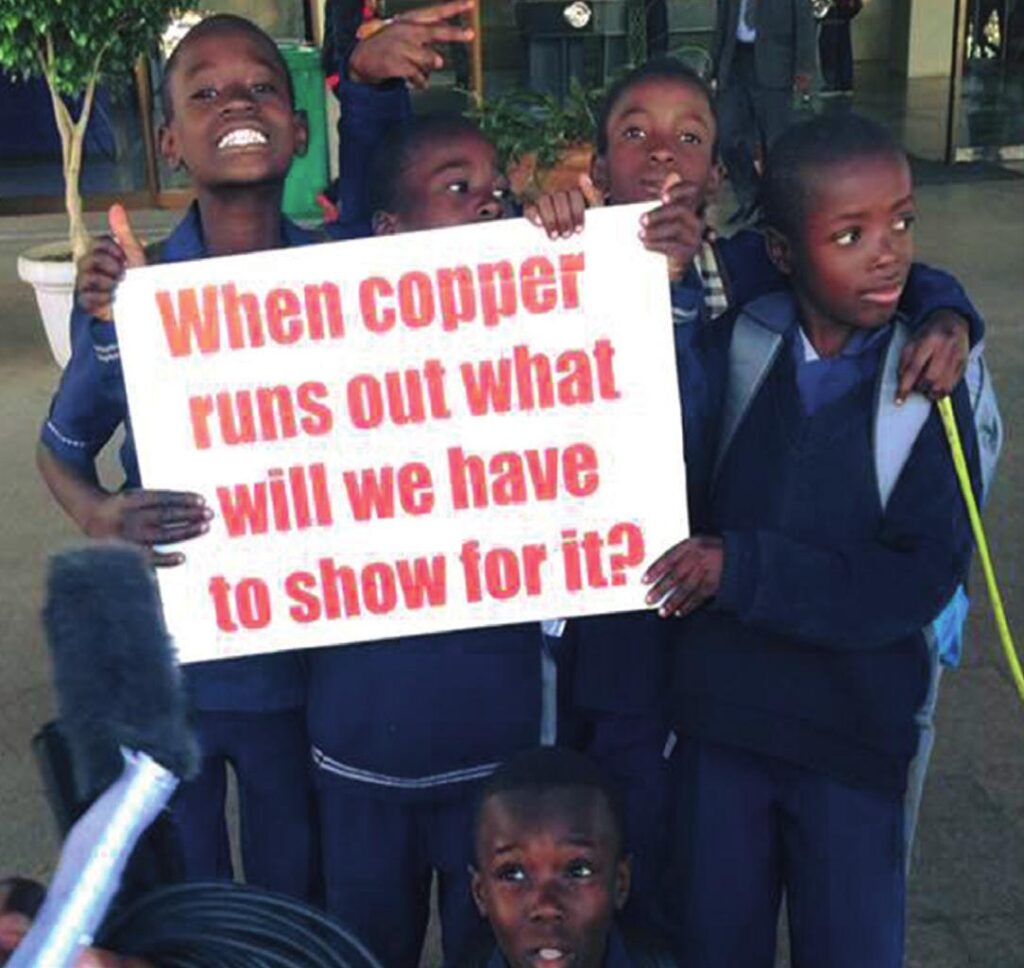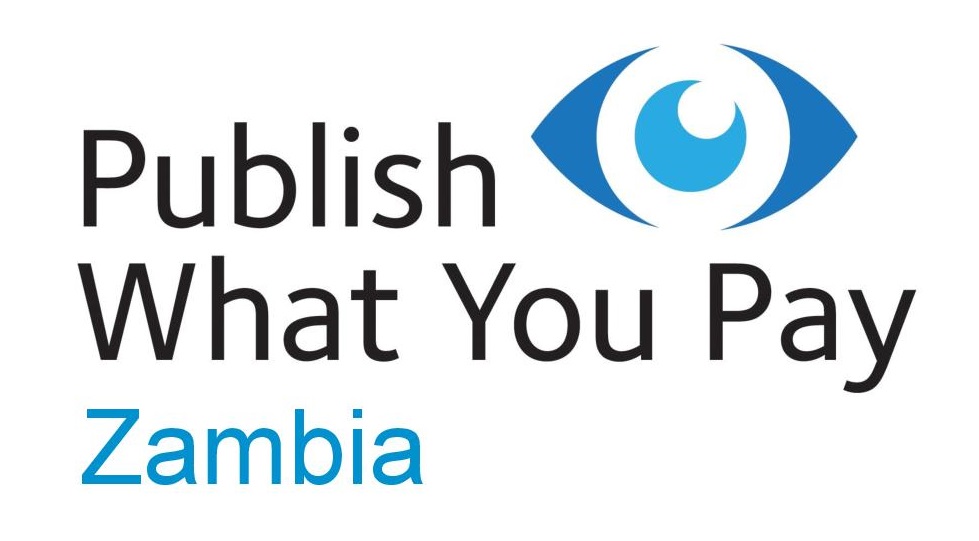
About us
The Publish What you Pay (PWYP) Zambia Chapter was launched in in June 2009, motivated by the fact that Zambia is a country that has been endowed with a lot of natural resources. Unfortunately, the revenues generated from the proceeds from natural resources does not benefit the lives of most ordinary Zambians. When properly managed, these revenues could be a basis for the much needed poverty reduction, economic growth and development as opposed to exacerbating poverty, corruption, and social conflict and social divisiveness.
The Zambia Chapter is part of the global network of over 50 national coalition and over 1,000 members of PWYP International coalition, formally launched in 2002, and has since that time campaigned continuously for transparency and good governance within the extractives sector.
OUR COALITION GOALS?
- To provide civil society with a broad and effective coordination and advocacy platform that is legitimate and representative to address issues concerning natural management in the extractive industries and in government;
- To ensure that PWYP members coordinate and work together in ensuring that the government and extractive industry operators adhere to and implement the Extractive industries Transparency Initiative (EITI) standards in Zamba;
- To ensure that PWYP members have the relevant competence and skills to address issues concerning natural resource management in the extractive industries and in government;
- To ensure that PWYP members are actively engaged in evidence based advocacy;
- To ensure that local communities represented by its members are empowered to engage on natural resource management issues affecting them;
- To ensure that the energy transition is not only just but also not repeat mistakes from the past (the resource curse);
- To promote African initiatives that aim to ensure that its citizens benefit from Natural resource Management e.g. the African Mining Vision (AMV), SADC Protocol.
WHY PWPY?
PWYP Zambia is a response to the poor governance and transparency in the management and utilizations of revenues from the country’s natural resources. We are particularly concerned about the:
- Failure to generate large enough revenues that can cultivate a robust economy and contribute substantially to poverty reduction.
- Failure to account for the true operational cost of the mines
- Failure by companies to declare their financial statements in a transparent manner, which accounts for limited analysis and scrutiny of the mining companies balance sheets;
- Poor record management that leads to inadequate declarations and/or accounting for the amounts received from the extractive industry companies
- The absence of up-to-date records on the extent of minerals deposits that the country is endowed.
HOW AIM
We aim to ensure that PWYP is:
- Informed by putting information in the public domain to promote good governance and accountability
- Influential in the formulation and implementation of extractive sector policy and legislative framework
- Heard by expanding the space for members’ participation and proactively identifying and challenging any restrictive environments.
- Connected, by increasingly working with strong cross-sectoral partnerships and alliances with the tax justice, human rights and gender justice movements.
OUR STRATEGIC PRIORITY AREAS
PWYP has four strategic areas, as follows:- policy and legal reforms; extractive transparency; climate change, energy transition and tax justice; and institutional capacity strengthening.

OBJECTIVES
To advocate for strengthening the legislative, policy and institutional framework governing the extractive sector in Zambia
- Contributing to strengthening the legislative, policy and institutional framework governing the extractive sector in Zambia by 2025.
- Contribute to mobilizing state and non-state actors including traditional leaders towerds a more participatory mining sector
- Advocate for upholding of the UN Guiding principles on business and human rights to ensure the revenues from extractives positively impact mine hosting communities
- Building capacity among students, youths and women groups to ensure sustainable Extractivism.
To promote the EITI as a tool to enhanced transparency, accountability and local beneficiation;
- Enhance CSOs capacity so they can meaningfully engage with the EITI stages/cycles.
- Enhance the uptake of information from the EITI repots
- Explore the extent to which the EITI informs, empowers and improves resource governance especially in host mining Communities and by ensuring effective collection of sub-national payments.
To advocate for an energy transition that is just, enhances tax revenue and promotes gender justice as well as children/youth empowerment;
- Advocate for the responsible phasing-out of fossil high emitters acting fastest and financing the global energy transition.
- Demand an economically fair and socially just transition to a low carbon economy that addresses the needs of every community, worker and country that depend on the fossil fuel industry.
- Advocate for the disclosure of information that enables investors, policymakers and citizens to understand and address the significant financial risks of the energy transition for companies and countries dependent on extracting, producing and using coal, oil and natural gas.
- Call for transformative governance of transition minerals so that these resources truly benefit citizens without perpetuating the existing global inequality.
To strengthen PWYP Zambia institutional capacity for the purpose of carrying out effective advocacy for enhanced natural resource governance in Zambia;
- Supplement the advocacy activities of Network members;
- Undertake advocacy which address policy and institutional reforms vis-a-vis pro poor development;
- Advocate on key strategic issues aimed at promoting pro-poor development;
- Ensure Advocacy is conducted within the confines of the law;
- Uphold PWYP Zambia’s reputation and image;
- Manage ad-hoc advocacy and ensure that such advocacy adheres to the broader objectives of the coalition and its members

WHO WE WORK WITH
- Government and line ministries,
- Trade unions
- Traditional leaders
- Media organizations
- Donors
- Like-minded initiatives
- Parliament,
- Councillors
- Districts authorities
- Public/communities
- Student bodies
GEOGRAPHICAL COVERAGE
PWYP Zambia opened provincial chapters in an effort to ensure representation at subnational level and provide technical support to CBOs that operate at that level. With a minimum of five formally registered CSOs per province, PWYP Zambia has over 50 affiliated members CSOs, making it the single-largest movement of non-state actors in extractives in Zambia.
